The Dave Brubeck Quartet – Take Five
The Dave Brubeck Quartet – Take Five
Dave Brubeck has long served as proof that creative jazz and popular success can go together. Although critics who had championed him when he was unknown seemed to scorn him when the Dave Brubeck Quartet became a surprise success, in reality Brubeck never watered down or altered his music in order to gain a wide audience.
Take Five
Dave Brubeck (born December 6, 1920) had classical training from his mother, but fooled her for a long period by memorizing his lessons and not learning to read music. He studied music at the College of the Pacific during 1938-1942. Brubeck led a service band in General Patton's Army during World War II and then, in 1946, he started studying at Mills College with the classical composer Darius Milhaud, who encouraged his students to play jazz.
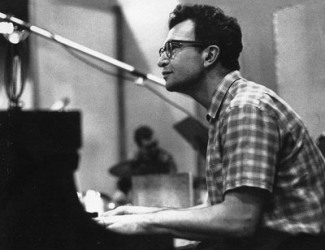
Dave Brubeck
During 1946-1949, Brubeck led a group mostly consisting of fellow classmates, and they recorded as the Dave Brubeck Octet; their music (released on Fantasy in 1951) still sounds advanced today, with complex time signatures and some poly-tonality.
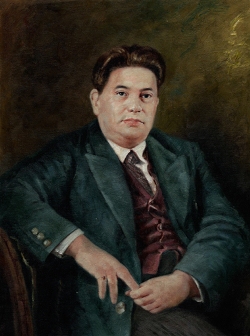
Darius Milhaud
Joe Goldberg declared in Jazz Review: "that jazz is not [Brubeck's] natural form of expression, but he is determined to play jazz, as if a man who knew five hundred words of French were to attempt a novel in that language."
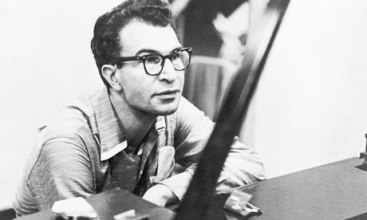
Dave Brubeck
In 1951, Brubeck was persuaded by altoist Paul Desmond to make the group a quartet. Within two years, the band had become surprisingly popular. Desmond's cool-toned alto and quick wit fit in well with Brubeck's often heavy chording and experimental playing; both Brubeck and Desmond had original sounds and styles that owed little to their predecessors.
Paul Desmond (born Paul Emil Breitenfeld; November 25, 1924 – May 30, 1977) played clarinet at the age of twelve at San Francisco Polytechnic High. It was not until he became a freshman at San Francisco State College that he picked up the alto saxophone.
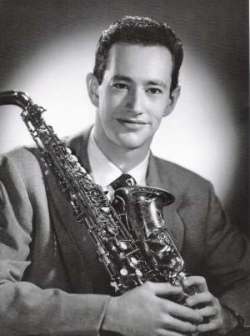
Paul Desmond
Desmond started working in Palo Alto, California at the Bandbox. He also worked some with Brubeck at the Geary Cellar in San Francisco. Desmond soon hired Brubeck, but cut his pay in half and then replaced him altogether after taking him along to Graeagle at The Feather River Inn for gigs; this was done so Desmond could gamble in nearby Reno. In 1950 Desmond left for New York City playing alto and clarinet for Jack Fina, but returned to California after hearing Brubeck's trio on the radio.
The story of their encounter is somewhat humorous. Brubeck — married with three children and holding a grudge from his earlier experience with Desmond — instructed his wife Iola not to let him set foot in his house. But Desmond came to his home in San Francisco one day while Dave was out back hanging diapers on a laundry line, and Iola let him in and took him to Brubeck. Apparently all the begging in the world would not convince Brubeck to hire him, at least not until Desmond offered to babysit Brubeck's children.
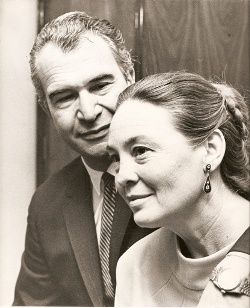
Iola & Dave Brubeck
The two had a contract drafted (of which Brubeck was the sole signatory); the language forbade Brubeck from ever firing him, ensured Brubeck's status as group leader, and gave Desmond twenty percent of all profits generated from the quartet. That is how the Dave Brubeck Quartet had its start, a group that began in 1951 and ended in December 1967.
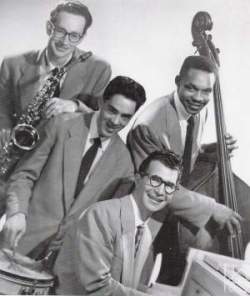
The Dave Brubeck Quartet
The quartet became especially popular with college-age audiences, often performing in college settings like on their 1953 album Jazz At Oberlin at Oberlin College or on their recordings on the campuses of Ohio University and the University of Michigan, among others.
In 1959, the Dave Brubeck Quartet recorded Time Out, an album their label was enthusiastic about but nonetheless hesitant to release. Featuring the album art of S. Neil Fujita, the album contained all original compositions, almost none of which were in common time: 9/8, 5/4, 3/4, and 6/4 were used. Nonetheless, on the strength of these unusual time signatures (the album included "Take Five", "Blue Rondo à la Turk", and "Three To Get Ready"), it quickly went platinum.
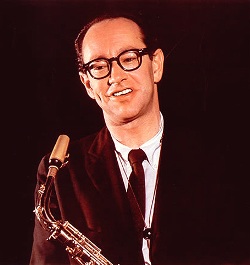
Paul Desmond
In Brubeck's interview with Zollo, he said: "The album came out but the sales people, they have formulas that are unwritten laws about what's going to work, what's going to sell. And my album couldn't have worked because it's all originals. They said you should never put out all originals, you have to put in some standards and some show tunes. Well, they were wrong. It worked. And you have to be in tempos that the public can dance to. Well, they couldn't dance to most of Time Out unless you got into some dance halls where people could dance to 5/4 and they did dance to it. So it's exposure. And also they didn't want a painting on the cover. I was breaking a whole bunch of rules."
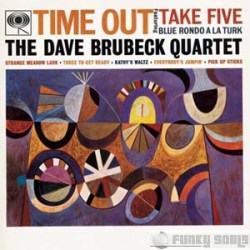
Time Out, cover
Brubeck explained in the same interview with Paul Zollo that he asked Desmond to try writing a song in 5/4. Said Brubeck: "I told Paul to put a melody over (drummer) Joe Morello's beat. So Paul put a couple melodies. But he didn't have a tune. He just had two melodies. He said, 'I can't write a tune in 5/4,' and he had given up. I said, 'You've got two good melodies here, let's work out a form.' So I worked out an A-A-B-A form and Paul caught on immediately."
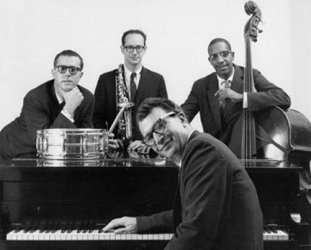
The Dave Brubeck Quartet
Take Five became one of the best-known records, famous for its distinctive, catchy saxophone melody and use of the unusual quintuple (5/4) time, from which its name is derived. While "Take Five" was not the first jazz composition to use this meter, it was one of the first in the United States to achieve mainstream significance, reaching #25 on the Billboard Hot 100 and #5 on Billboard's Easy Listening survey, the precursor to today's Adult Contemporary charts, in 1961, two years after its initial release.

Take Five
"Take Five" was re-recorded and performed live multiple times by The Dave Brubeck Quartet throughout the group's career. In addition, there have been many covers of the piece. Some versions also feature lyrics, including a 1961 recording with lyrics written by Dave Brubeck and his wife Iola, sung by Carmen McRae. Al Jarreau performed an unusual scat version of the song in Germany in 1976.
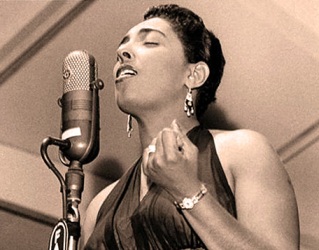
Carmen McRae
"Take Five" has been included in countless movies and television soundtracks, and still receives significant radio play. It was for several years during the early 60s the theme music for the NBC "Today" program, the opening bars played half a dozen times and more each day.
Upon his death in 1977, Paul Desmond left the rights to royalties for performances and compositions, including "Take Five", to the American Red Cross, which has since received combined royalties of approximately $100,000 per year.

Paul Desmond
Take Five, lyrics by Iola Brubeck
Won’t you stop and take a little time out with me, just take five; Stop your busy day and take the time out to see I’m alive. Though I`m going out of my way, Just so I can pass by each day, Not a single word do we say, It`s a pantomime and not a play Still I know our eyes often meet, I feel tingles down to my feet, when you smile that’s much too discrete, sends me on my way. Wouldn’t it be better not to be so polite, you could offer a light; Start a little conversation now, it’s alright, just take five, just take five. Though I`m going out of my way, Just so I can pass by each day, Not a single word do we say, It`s a pantomime and not a play Still I know our eyes often meet, I feel tingles down to my feet, when you smile that’s much too discrete, sends me on my way. Wouldn’t it be better not to be so polite, you could offer a light; Start a little conversation now, it’s alright, just take five, just take five
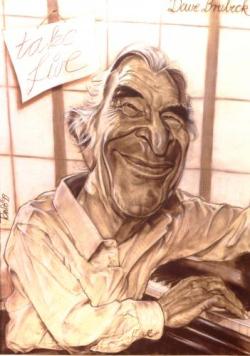
Dave Brubeck
Last Updated (Friday, 20 March 2015 15:12)








